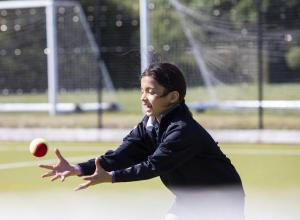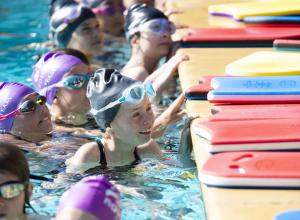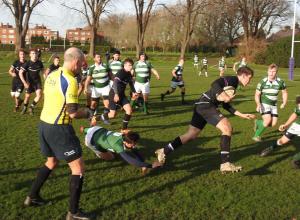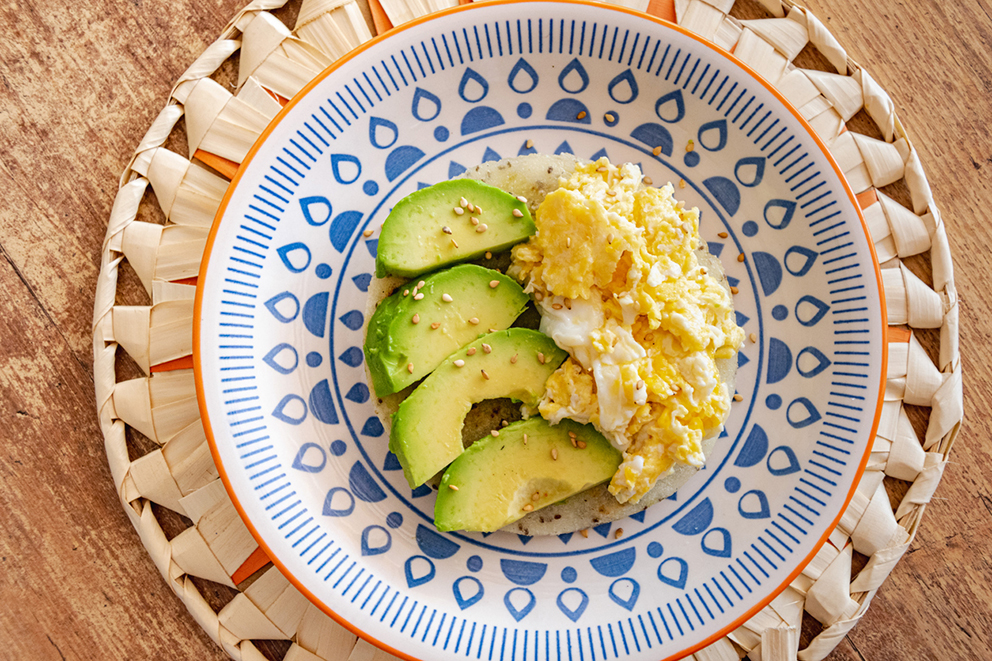
Head of Senior School Andy Woodward reminds us why eating breakfast is so important, especially for our teenagers.
I try to circulate around the Senior School forms each morning, saying my hellos and chasing pupils from corridors into rooms. Being somewhat limited in the scope of my small talk, I tend to begin with the basics: “What’s the last song you were listening to?” or “Do you really think that adheres to our Dress Code?!”.
But the one I’ve asked more and more this term is… “What did you have for breakfast?”. And, I have to admit, the answers have alarmed me. There are those who have nothing at all (‘I never eat in the morning’), those who grab it on the way to school (eg too often junk food) and those who at least manage fruit or a smoothie. And, admittedly, one or two others who drive me to jealousy with their accounts of bacon sarnies or sausage rolls… But what I rarely encounter is anyone rivalling my own intake of two Weetabix, toast with Marmite, orange juice and a banana. Is that excessive? I don’t really think so. It is finished before 7am and lunch will not be for five or six long, busy hours. Is it healthy? Well, I thought so before I started this post and the accompanying PSHRE resource this week – since which it’s been pulled apart by various colleagues (eg it lacks protein, the juice will give only a short-term energy spike… fine, I’m open to changes)! But I know I need the fuel and energy for the morning ahead… and for too many pupils I want to know - where is their energy supposed to come from?
One particular study at the University of Leeds conclusively found that consumption of breakfast by children before school improves their cognitive performance, academic performance and on-task behaviour in class
Head of Senior School, Andy Woodward
It is not a small matter. Academic research conveys that it is a really important consideration. The brain exertion required in learning new information at school requires large amounts of energy, if that content is to be effectively stored and retained. The teenage years are of course ones of great change – physical and hormonal. One particular study at the University of Leeds conclusively found that consumption of breakfast by children before school improves their cognitive performance, academic performance and on-task behaviour in class. Conversely, those who opt out are therefore placing themselves at a disadvantage. If they are replacing breakfast with an energy drink (as some indeed are) then the issue may be particularly compounded, as these have themselves been linked to an increase in emotional and behavioural problems.
This is all part of a wider concern that the significance of children’s nutrition is often overlooked (not least by the children). It is thoroughly well established that consuming foods rich in nutrients, vitamins and anti-oxidants can have a positive effect on brain function and mood… whereas a diet high in sugar and processed foods can make us feel sluggish, dependent and anxious. The impact of the choices made are key for our physical, and mental, health.
It is thoroughly well established that consuming foods rich in nutrients, vitamins and anti-oxidants can have a positive effect on brain function and mood… whereas a diet high in sugar and processed foods can make us feel sluggish, dependent and anxious
At Harrodian, in all honesty, it seems we are seeing less of the much-heralded ‘obesity crisis’ than may be the case elsewhere. For us, the problem is often the opposite – body image pressures can lead our pupils to demonise carbohydrate and fat intake, overlooking the fact that they are in fact among the key components of a balanced diet. Indeed, the early practice of calory-cutting and total avoidance of food groups can itself lead to myriad issues, including future issues with bone growth or fertility. It is far better that we continue educating youngsters (and ourselves!) – a process that begins here in their Science lessons - to understand the nuances within these categories rather than to fear them entirely. They should know, as I never really did, the difference between complex carbohydrates that slowly release energy, found in beans, lentils or brown rice, and simple carbohydrates that will give only a short-term boost before focus and attention fall away. Or between saturated fats and the healthy fats found in fish, nuts or avocado.
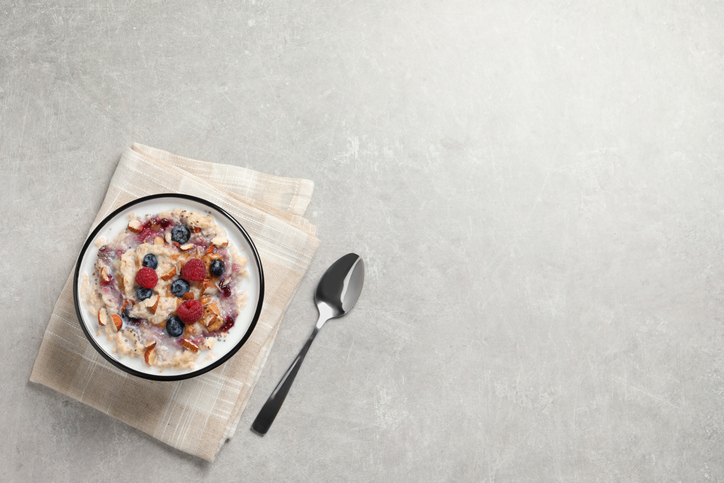
For us [at Harrodian], the problem is often the opposite – body image pressures can lead our pupils to demonise carbohydrate and fat intake, overlooking the fact that they are in fact among the key components of a balanced diet
We know the Harrodian day is long. Pupils work hard and often run around plenty too. There will be times where Seniors pupils – perhaps because of clubs or due to a popular menu day where everyone stays for seconds – don’t make it into the Dining Room until nearly 2pm. We really need to know that they are intentionally fuelled to cope with navigating that stretch of time – which includes them bringing snacks in for break, and a bottle for water too. Our Nurses remain convinced that a large proportion of those who come to them feeling unwell or with a headache are simply experiencing dehydration.
Outside of this, if at all possible, parents and children taking the opportunity to sit down together at the meal table at the start and end of the day, is among the healthiest of habits. Young people left to their own devices are more likely to snack - or to opt for takeaway - than to prepare their own nutritious meals (something our exciting new online Cooking Club for the 13s has been rolled out to address!). As ever, parents are the role models in this – in showing how to prioritise ‘real’ food, in taking the time for it, and in speaking positively about it.
In researching this, I have been surprised to see that much of the above (hydration, protected meal times, child involvement in cooking) is specifically recommended by the NHS to parents of those with ADHD. And there are all sorts of other different rabbit holes the topic can take you down… indeed I know there are a whole world of books, programmes, podcasts and more stating all the ways that poor nutrition within our profit-driven convenience culture have scuppered our bodies, our attention spans, our environment and any other thing humans can scupper. I won’t get too carried away. But I do want to restate the key point: Our pupils need a breakfast that will fuel them for the hard-work hours ahead, followed by a snack at break, and a willingness to make the most of their school lunch (there’s plenty there each day, honest… a fresh meal, a salad bar, yoghurt, soup, bread etc).
It may seem like this post has merely stated the obvious… but until more pupils have a reasonable answer to my tedious enquiry – “what did you have for breakfast?” – I will keep on asking the question!

Andy Woodward is Head of Senior School.
He welcomes feedback to this blog at website@harrodian.com


